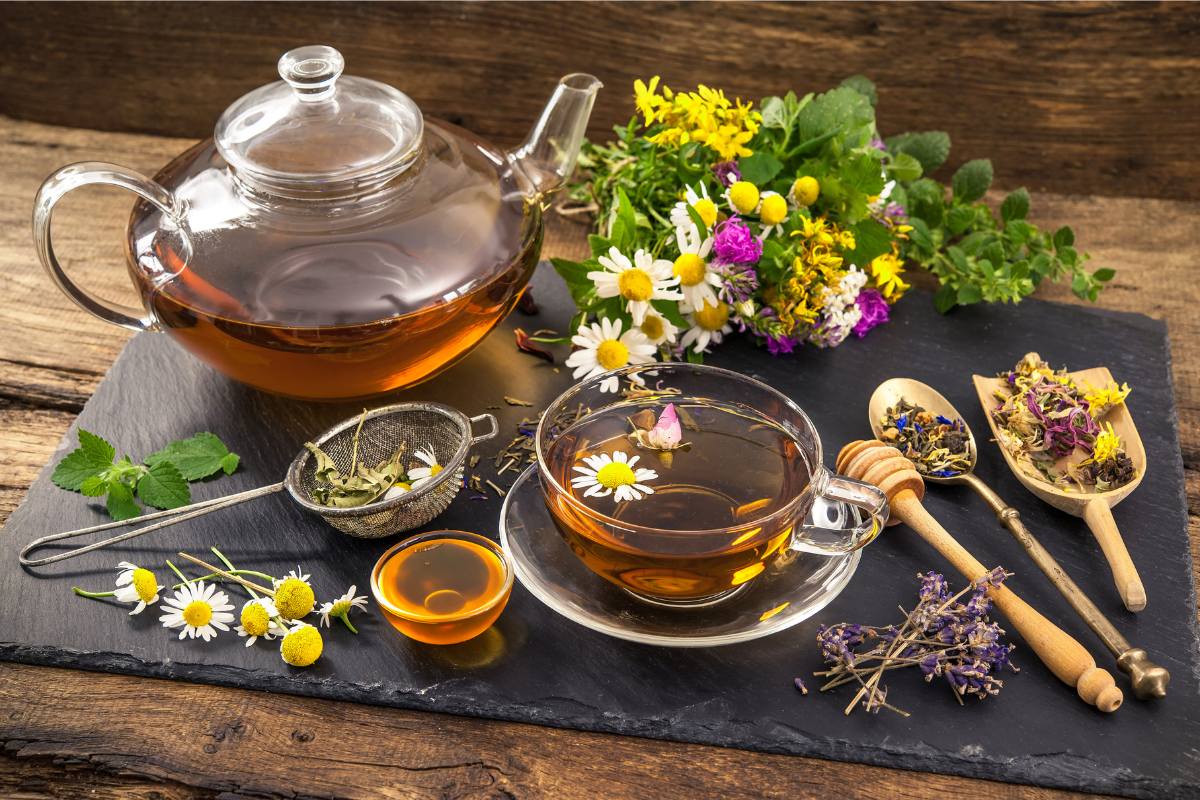They're refreshing, they're healing, they're comforting, and they're super-yum. Yes, we're talking about herbal teas. The benefits of herbal teas have been known for centuries now. Whether you consume it as a cool summer drink or a warm one on those chilly winter days, it will benefit you. The universality of herbal teas makes them one of the best drinks for all occasions.
Herbal teas aren't teas exactly. Traditional teas, like black tea, green tea, and oolong tea, are obtained from tea plantations. In contrast, herbal teas are a concoction of dried flowers, herbs, spices, and fruits. This is one of the reasons herbal teas are abundant in flavors and varieties. Moreover, you have the liberty to add ingredients according to your liking, making herbal teas quite versatile.
Herbal teas are known to carry several benefits. They're one of the go-to beverages for individuals who want to improve their health. Weight loss, boosting immunity and digestion, relaxation, and detoxification are among the many benefits of herbal teas.
List of herbal teas
While we have all the liberty to get as creative with our herbal teas, here are some of the most popular classic herbal teas.
- Ginger tea: Ginger tea, as the name suggests, consists of ginger and other herbs and spices. Some people also like to add some honey to add sweetness; others prefer it spicy. Ginger tea is anti-inflammatory, rich in antioxidants, and is known to be a great immunity booster.
- Chamomile tea: Chamomile tea is one of the most popularly known herbal teas. It's often consumed for its relaxing effect that aids in better sleep. Several studies have suggested that chamomile tea can significantly help with sleeping problems and anxiety.
- Lemon Balm tea: Lemon balm tea is another excellent tea known for its calming effects. It helps in reducing the production of the stress-causing hormone - cortisol - without making one feel drowsy. This makes it one of the best herbal teas when you need a midday recharge.
- Peppermint tea: This herbal tea is often consumed from menthol for its antibacterial, antiviral, and anticancer properties. Peppermint tea is rich in antioxidants and is known to help with digestive tract health. Moreover, menthol is an excellent muscle relaxant, making it the perfect drink to unwind at the end of a long day.
- Ginseng tea: Ginseng tea is one of the most popularly consumed herbal teas in Asia. It helps boost overall health while increasing immunity by revving up the production of white blood cells in the body.
- Hibiscus tea: Hibiscus tea is an excellent source of polyphenols. Polyphenols are found in colored fruits and vegetables. Hence, the more colorful your tea is, the more the polyphenol content. Polyphenols have been shown to lower LDL cholesterol levels, prevent cancer, and reduce the risk of heart disease.
Herbal tea benefits
Herbal teas carry numerous benefits, which is why they're one of the most popular and healthy beverages loved by kids and adults. Listed below are some of the most commonly known benefits of herbal teas.
- Herbal tea for anti-aging: Herbal teas are packed with antioxidants. Antioxidants help in fighting off free radicals and cell restoration. This slows down the skin's aging process while making you look younger.
- Herbal tea for the prevention of chronic diseases: As stated above, herbal teas are abundant in antioxidants and polyphenols. Antioxidants help in curbing free radicals and aid in cell regeneration. Studies have suggested polyphenols reduce the likelihood of diseases like cancer and diabetes.
- Herbal tea for weight loss: The ingredients of herbal teas can significantly help with weight loss. Herbal teas help rev up the metabolism. Since they're water, herbal teas carry zero calories, making them the perfect beverage to go for when trying to lose weight.
Final thoughts
Herbal teas can make the perfect beverage for any weather. However, they are often loaded with very powerful phytonutrients and compounds that have adverse effects if you are allergic to them. It is always advised that you consult your physician before you start on any teas and avoid ingredients you might be allergic to.

